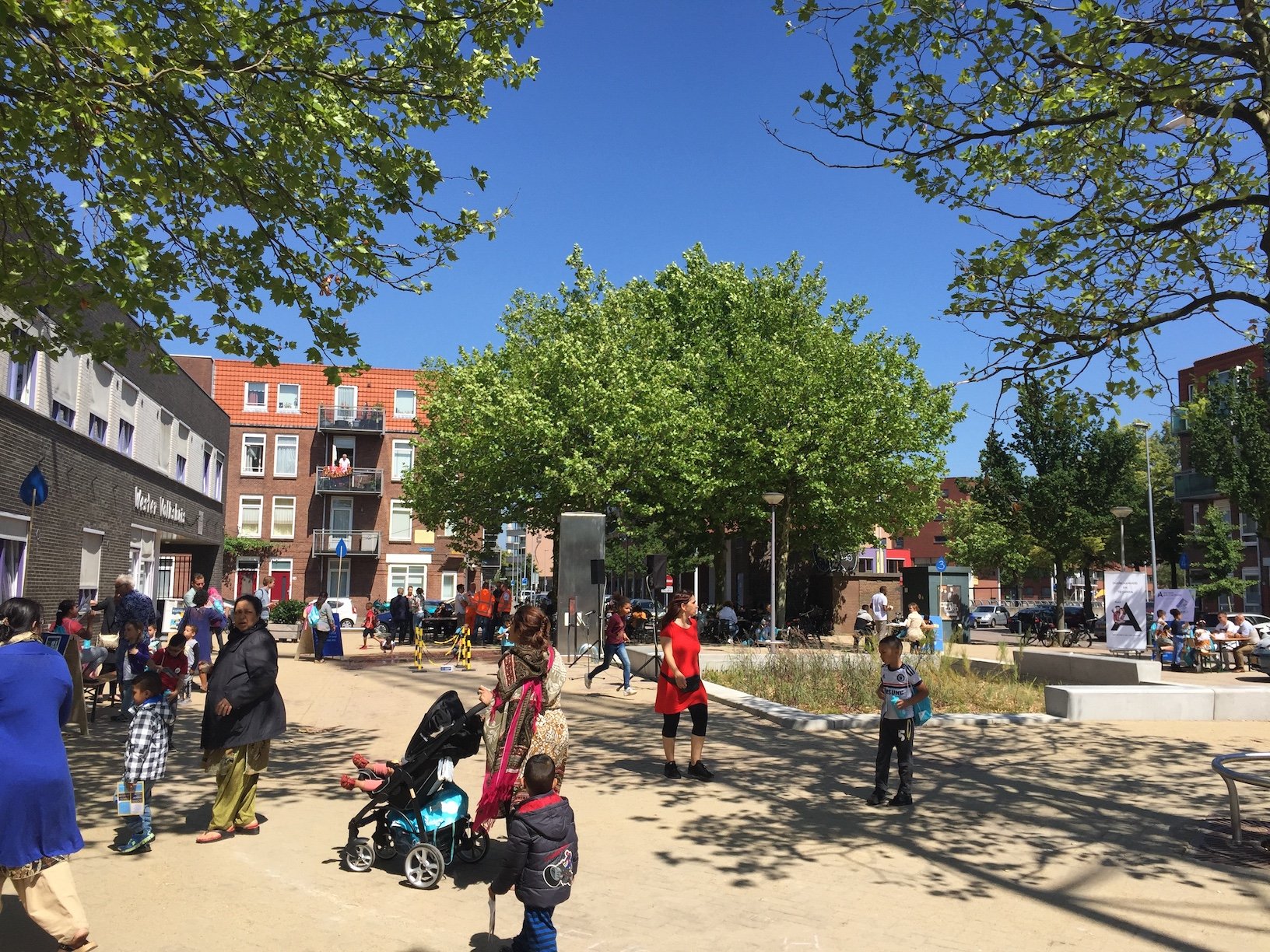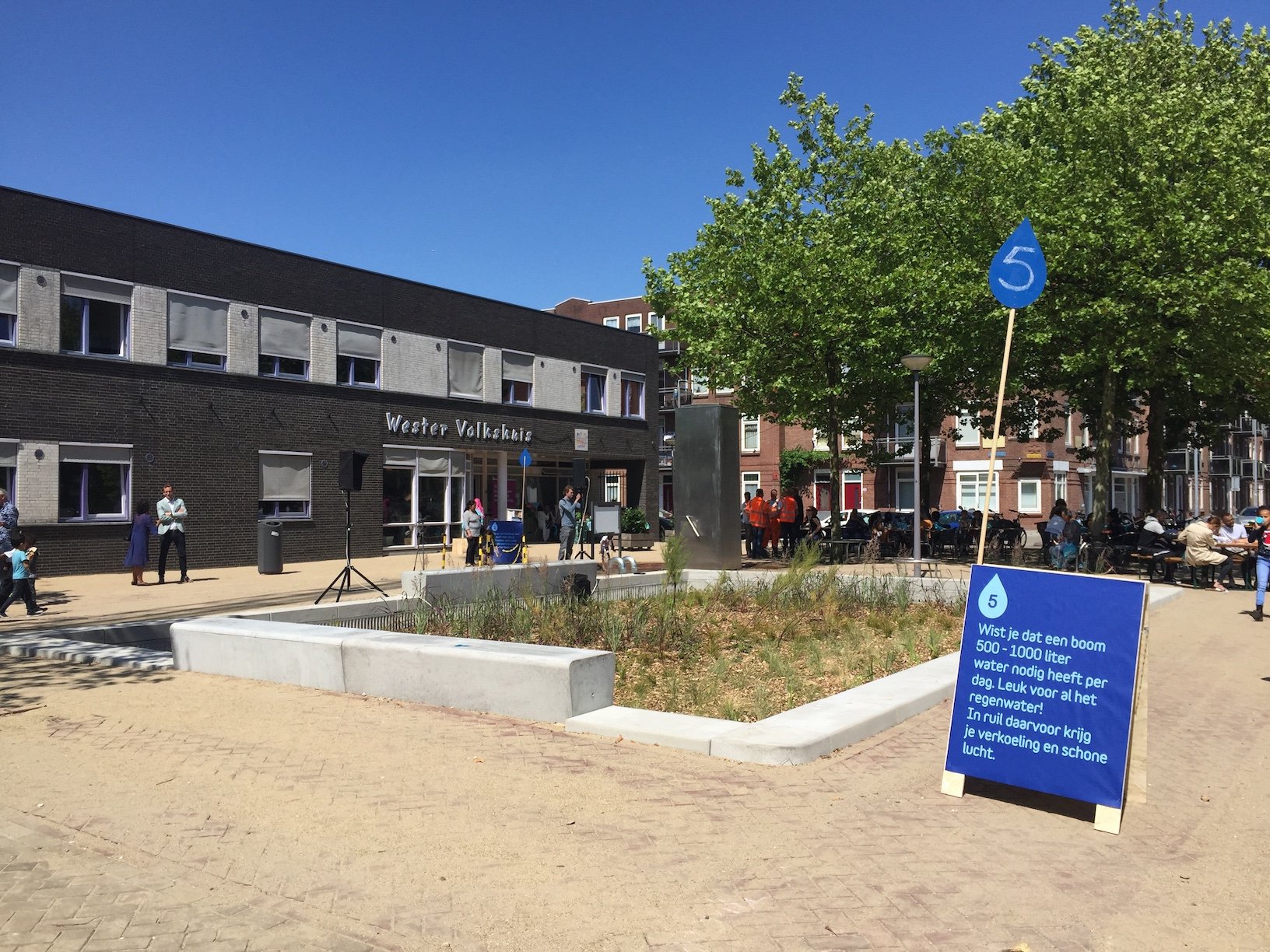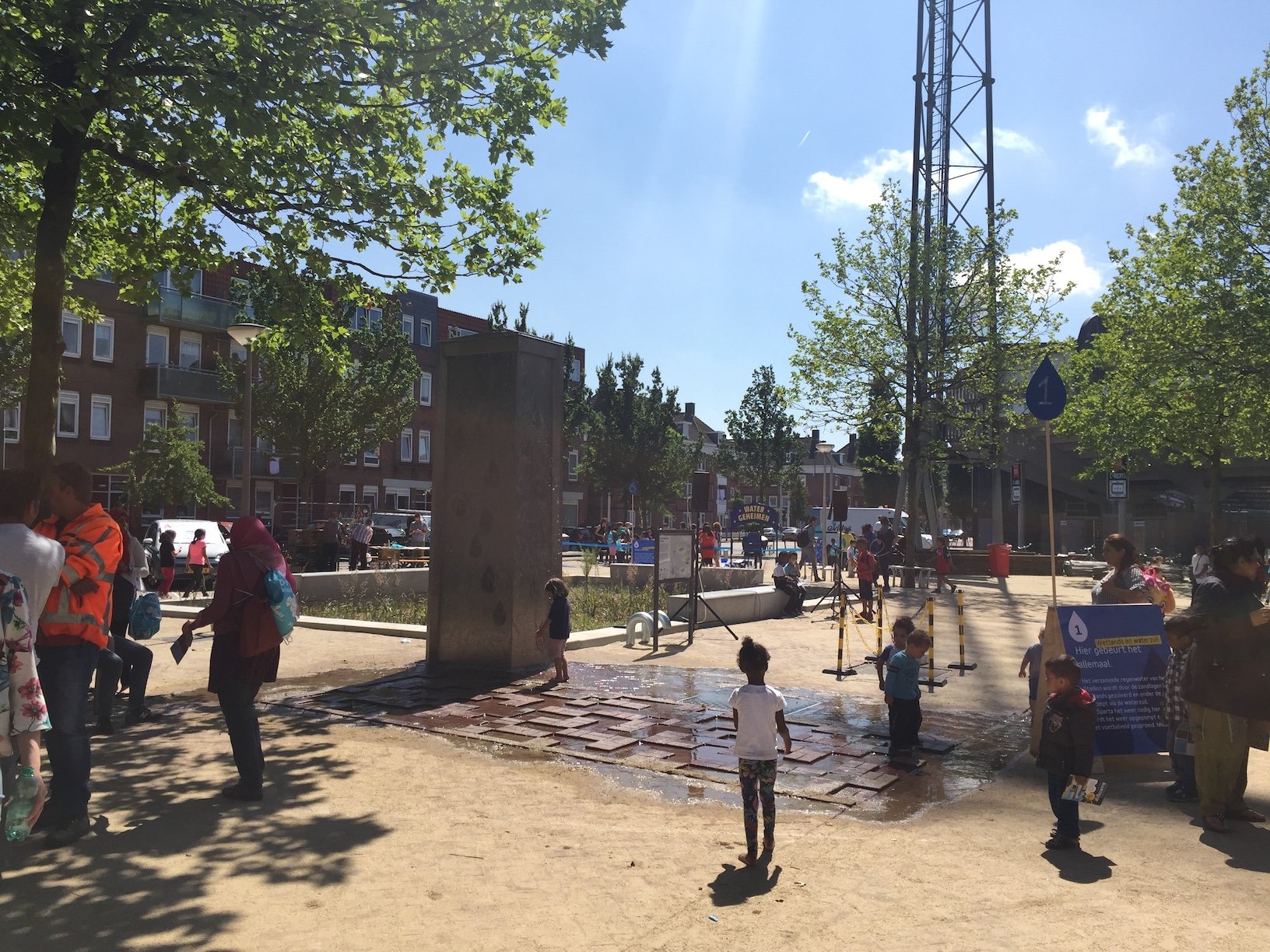Urban Waterbuffer supplies water for Sparta stadium, Rotterdam
Yesterday, the first Urban Waterbuffer was opened at the Spartaplein in Rotterdam. This was accompanied by a neighbourhood festivity, which also focused on the importance of the changing urban climate.
More and more cities are faced with the question: how do we deal with heavy rain events and longer periods of droughts? We work together with a broad consortium of water boards, municipalities, companies and knowledge institutes on the research project Urban Waterbuffer, within TKI Water Technology. This innovative concept aims to retain rainwater in the subsoil in the city, in order to prevent pluvial flooding and to make freshwater available during dry periods.
Unique application with many advantages
An underground water buffer has been created in the Spartaplein in Rotterdam, where rainwater is collected and stored in the ground for later use. The water storage under the Cruyff Court can retain about 30 millimeters of precipitation from around 4 hectares of built surface (streets, roofs and squares).
The collected rainwater is treated though a Bluebloqs Wetland. The purified water is subsequently stored in a sand layer at a depth of 20 meters via an infiltration well. This water is later pumped up and used for irrigating the sport pitch of the Sparta stadium, and for cooling and children to play during the hot summer days through the biofilter and a water feature.
The Urban Waterbuffer is a circular solution that reduces the risk of pluvial flooding in the neighbourhood Spangen and enables a sustainable use of rainwater. Through active communication, water awareness is also being increased in Spangen.
“We now have advanced plans for at least two and possibly four other locations where we want to infiltrate rainwater in the subsurface”
Next up
In the coming year, the Urban Waterbuffer in Rotterdam will be monitored to assess the effectiveness of the pre-treatment and to gain practical experience.
Partners
The Urban Water buffer is realised by KWR, Wareco, Field Factors, Codema B-E De Lier, Evides Waterbedrijf, Municipality of Rotterdam, Municipality of The Hague, GemMunicipality of Rheden, Hoogheemraadschap van Delfland, Hoogheemraadschap van Schieland en de Krimpenerwaard, Stowa and Stichting Rioned. This activity is co-financed by the Supplement for Top Consortia for Knowledge and Innovation (TKIs) of the Ministry of Economic Affairs and Climate.






